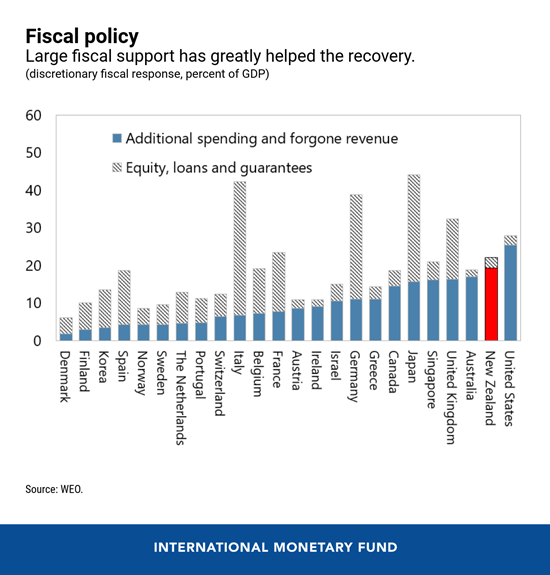New Zealand has successfully pursued a strategy of eliminating COVID-19 infections, centered around stringent public health measures. These have included a strict lockdown early in the pandemic; managed quarantine requirements; a focus on testing, contact tracing, and social distancing; and ongoing strict travel restrictions. The result has been remarkable, with very few infections and deaths.
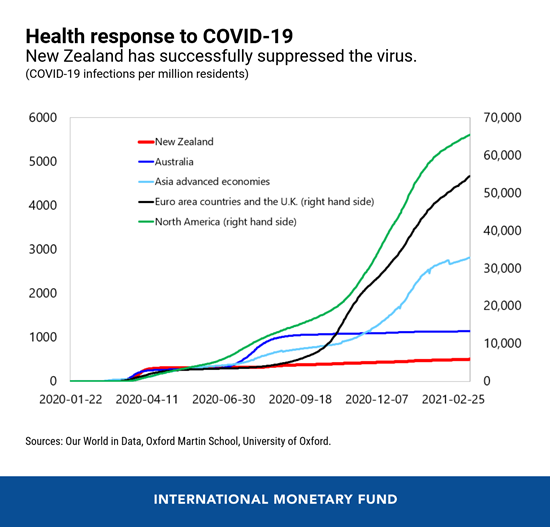
Once community transmission was eliminated and lockdown measures eased, the economy rebounded rapidly in the second half of 2020. By the fourth quarter of 2020, New Zealand’s growth performance ranked near the top among Organisation for Economic Co-operation and Development countries. In our latest assessment, we project that, despite continued, strict travel restrictions, real GDP will grow by 4 percent in 2021, which should lead to lower unemployment and positive income growth.
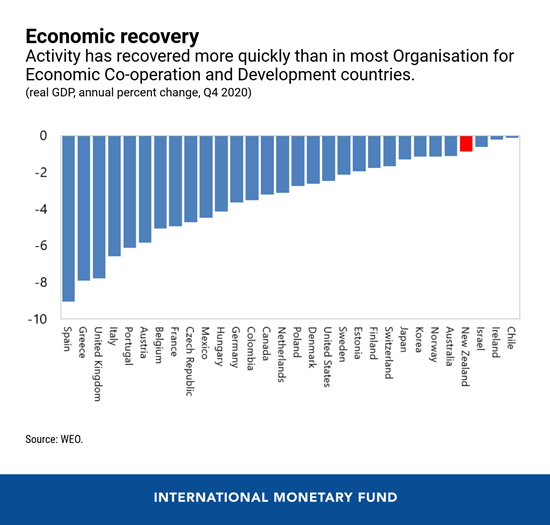
In addition to the successful health response, large-scale economic support enabled this fast recovery. New Zealand’s fiscal support package, among the largest in the world relative to the size of the economy, featured large wage subsidies to retain employment during the lockdown and beyond, allowing businesses to rapidly re-open once conditions permitted.
The Reserve Bank of New Zealand also played a key role by easing monetary policy and creating special facilities to ensure credit continued to be available during the crisis. For the first time, New Zealand used unconventional monetary policy featuring large-scale bond purchases to lower longer-maturity interest rates. Together, the unprecedented fiscal and monetary stimulus prevented large-scale unemployment and insolvencies while preserving financial stability.
With the recovery in train, the focus can shift increasingly from near-term to medium-term challenges. Large recessions, like last year’s, tend to not just impair near-term growth but also the level of economic activity the economy can sustainably reach in the medium term. Our recent cross-country analysis suggests that after a recession, medium-term output in advanced economies tends to remain around 4½ percent below pre-recession trends, and more severe downturns tend to leave a larger medium-term impact.
In New Zealand’s case, addressing long-standing structural issues—evident long before the pandemic—could limit such scarring and support durable growth over the medium term. While New Zealand does generally very well in international comparisons of structural policies, the latest consultation with New Zealand features analysis of remaining gaps and ways that some of these long-standing issues can be addressed.
Enhancing productivity should be a key focus in the post-recovery period
Estimates for productivity growth—how much output can be generated with a given level of inputs (labor and capital)—show that New Zealand’s performance has persistently lagged other advanced economies. Looking at the data closely, several factors contribute to this long-term trend.
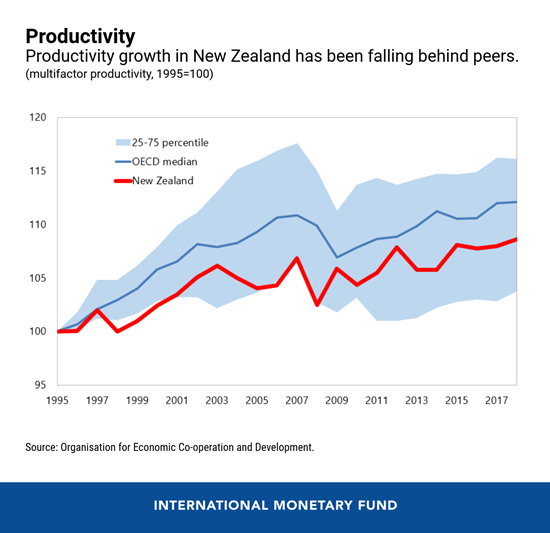
Better financed research and development (R&D)—by both the government and private sector—could boost innovation
Both the government and private sector lag peer countries in R&D spending, hampering productivity growth. As R&D spending is subject to uncertainty—there are no guarantees investments will pay off in every case, and intangible assets are not liquidated easily—the government can contribute by increasing its own spending and diffusing any innovations to the private sector, and by providing more incentives for companies to encourage higher private sector R&D spending.
As the government reviews how R&D is conducted and financed in New Zealand, a number of vehicles already exist to ramp up public expenditure and catalyze private sector activity. The Crown Research Institutes, which have a track record in this area, can be strengthened, while the tax credit scheme to support private R&D could be expanded.
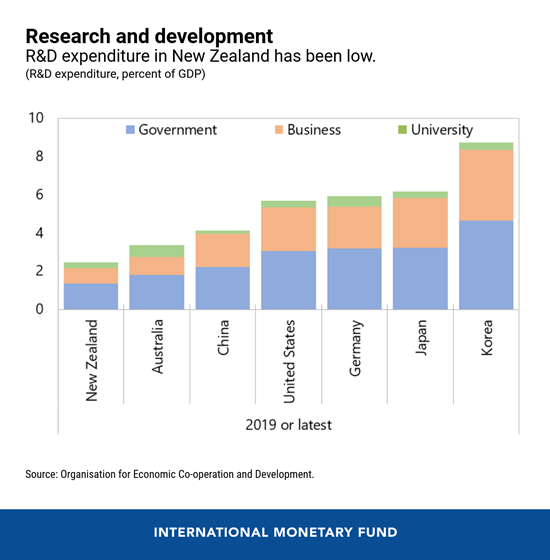
New Zealand could benefit from more foreign direct investment (FDI)
Another avenue to strengthen innovation, particularly to promote technology sharing, is to encourage global collaboration, including by attracting more FDI. Economic research shows that stronger connectivity to the global economy through trade and investment promotes innovation and boosts productivity.
However, New Zealand has higher barriers to FDI than its peers, which impedes entry to foreign firms. The ongoing review of the Overseas Investment Act, with the aim of streamlining approval procedures, could help promote greater inward investment to address this gap.
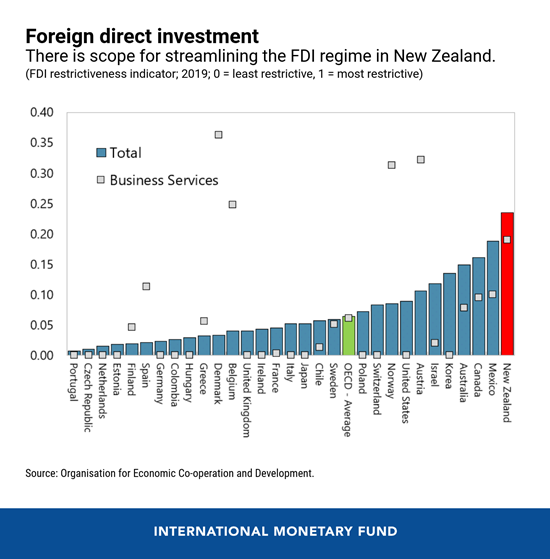
In addition to these important areas, our analysis suggests that the government’s focus on addressing infrastructure gaps—particularly in energy, transport, and telecoms—can have a high payoff. There is also scope to revisit product market regulations to make them smarter, thereby lowering costs and spurring competition, without sacrificing safety or other interests.
In addition, addressing pockets of high unemployment and low labor force participation among young people and some ethnic communities through targeted labor market interventions would both unlock an input to sustain strong growth in the medium term and reduce income inequality.
Support for employment through the Flexi-Wage scheme, which subsidizes employment of these vulnerable groups, and expanding and modernizing training opportunities are useful avenues to raise employment and address skill mismatches.




